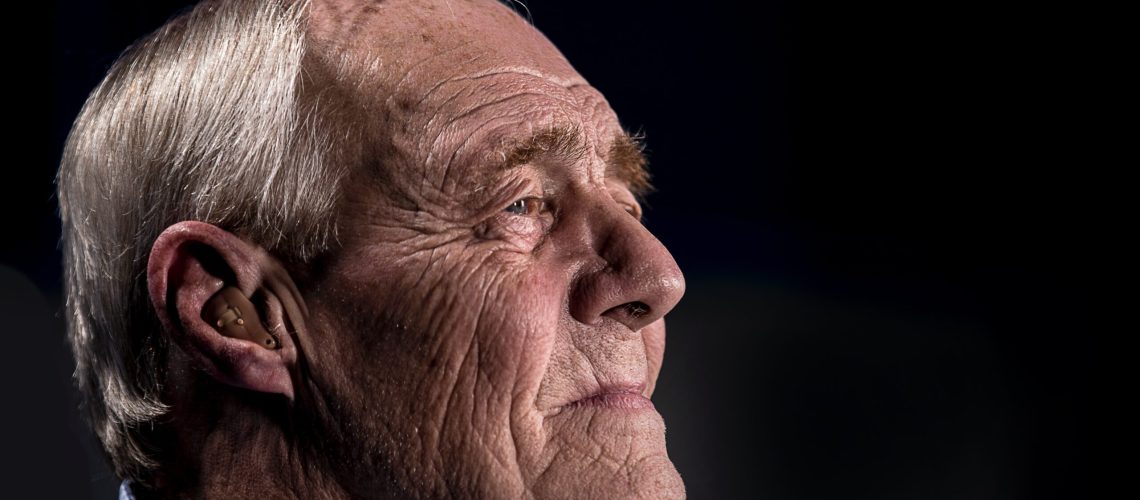Anxiety is your body’s response to stress, most often when thinking about the future. It is natural to feel fear or apprehension when the future is unsure. An anxiety disorder is when this fear persists over a long period of time and significantly interferes with someone’s life. There are many stressors that come with aging. Memory problems, declining health, loneliness, and coping with grief/loss of loved ones are just a few. Anxiety disorders are more common among the elderly than their younger counterparts. Things that never bothered them before can become major stressors as they age. A study by the International Journal of Geriatric Psychiatry found that over 27% of older adults experience life-impacting anxiety symptoms.
The disorder often goes undiagnosed in older patients for a few reasons. Elderly patients tend to express anxiety as physical pain rather than emotional distress. So it gets misdiagnosed as something else entirely. Because of the aging process, older patients also tend to have other medical issues, which makes it harder to spot. It’s important to be aware of big changes, such as moving into a nursing home or the death of a loved one. It is normal for these events to cause anxiety. However, if it causes excessive feelings of distress, for more than 6 months they should be treated by a professional.
Predominate Types of Anxiety in Seniors
- Generalized Anxiety Disorder (GAD): This is the most common type of anxiety among the elderly. It is a persistent pattern of worry about everyday issues. People with GAD find it difficult to regulate the intensity and frequency of their worries. Some people even excessively worry, for no obvious reason, about things they cannot control.
- Social Anxiety: This is a disorder that causes people to have an intense fear of social situations. They frequently feel like they are being unfairly judged or rejected by the people around them. Debilitating symptoms include; stumbling over words, blushing, sweating, or rapid heart rate. Social Anxiety exacerbates loneliness for a senior trying to make friends or during new situations where strangers are involved.
- Acute Stress Disorder (ASD): This condition usually occurs after a traumatic life event and has similar symptoms to PTSD. ASD causes extreme fear, helplessness, and other behavioral disturbances. Typically if symptoms last for more than a month it is re-diagnosed into PTSD.
- Post-Traumatic Stress Disorder (PTSD): When someone experiences a terrifying event, our bodies/minds do not want it to happen again. So in response, anytime they are reminded of this event (either by outside triggers or in their own memory), they have a physical reaction to it. Often people feel overcome by these feelings and need help coping. PTSD can also unexpectedly manifest at any point in your life. In the elderly, for example, they may be having a reaction to a recent trauma or something that happened much earlier in their life.

- Panic Attacks: Sudden bouts of intense fear are what characterize a panic attack. One will experience an overwhelming onslaught of physical symptoms and you may even feel like you are having a heart attack. These include; heart palpitations, trembling, nausea, dizziness, chest pain, and feelings of disassociation. Thankfully they are short-lived. Panic attacks usually peak within 10 minutes or less and then begin to dissipate. Though these can be a result of past trauma or depression, in the elderly they can also be brought on by the side effects of medications.
- Obsessive-compulsive Disorder: This disorder occurs when an individual has uncontrollable urges or obsessions. To relieve this distressing feeling, they then develop compulsive behaviors in an attempt to get rid of the obsession. This continues in a repetitive cycle that they cannot manage. Sometimes OCD can present during the early stages of Alzheimer’s. Stressful events, such as moving into a living facility, death of a loved one, etc. can also intensify OCD.
- Phobias: This is an irrational fear of an object or situation, that would otherwise pose no threat. Arachnophobia, the fear of spiders, is a well known one. Phobias leave elderly sufferers feeling out of control and unable to have a normal life.
Because seniors tend to have other risk factors and be on multiple medications already, most doctors prefer to try psychotherapy first. Luckily Medicare covers many different types of treatments for mental health conditions. Be sure to recognize symptoms so seniors can get the help they need.


